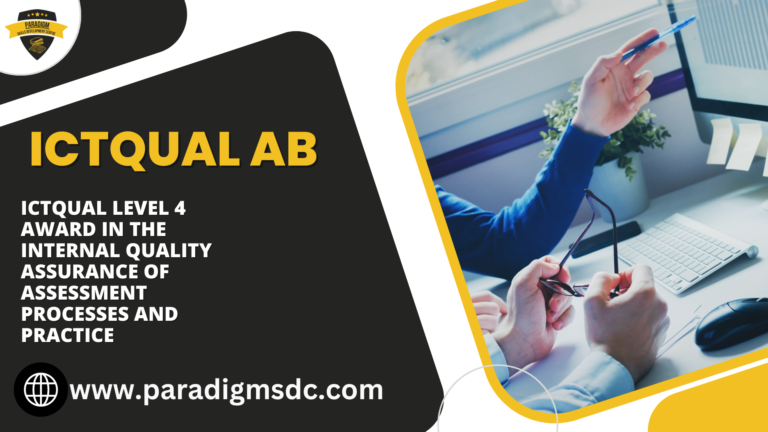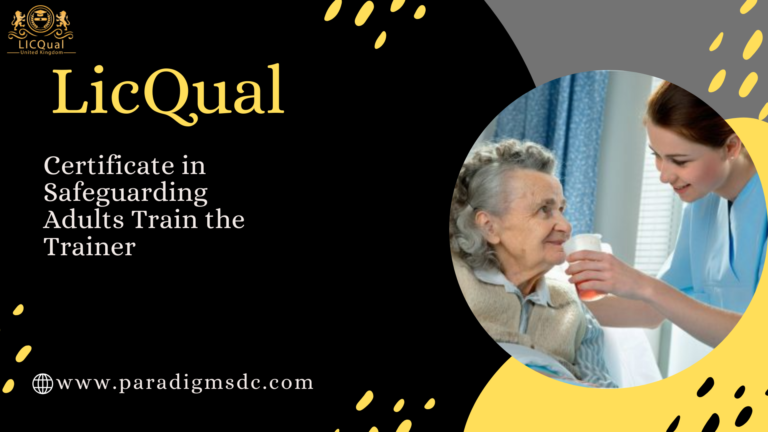Course Introduction
The ICTQual Level 2 Award in Infection Prevention and Control is a comprehensive training program aimed at providing participants with an understanding of infection prevention principles and practices. This course covers various aspects of infection control, from understanding pathogens to implementing effective control measures, ensuring participants are well-prepared to minimize infection risks.
Course Overview
This course spans several weeks and includes a blend of theoretical knowledge and practical application. Participants will learn about the different types of pathogens, how infections spread, and the best practices for preventing and controlling infections in various settings. The curriculum is designed to provide a thorough understanding of infection control standards and guidelines, equipping students with the skills necessary to implement these practices effectively.
Course Study Units
- Introduction to Infection Prevention and Control
- Microbiology and Pathogens
- Principles of Infection Prevention and Control
- Role of the Individual in Infection Control
- Personal Hygiene and Infection Control
- Environmental Hygiene and Cleaning
- Infection Control in Specific Settings
- Legislation and Regulatory Requirements
Learning Outcomes
Upon completing this course, participants will be able to:
- Introduction to Infection Prevention and Control:
- Understand the importance of infection prevention and control in various settings.
- Recognize the impact of infectious diseases on public health.
- Identify key terms and concepts related to infection prevention and control.
- Microbiology and Pathogens:
- Describe the different types of microorganisms that cause infections.
- Explain the routes of transmission for infectious agents.
- Understand factors that influence the spread of infections in communities and healthcare settings.
- Principles of Infection Prevention and Control:
- Demonstrate knowledge of basic principles and practices of infection prevention and control.
- Describe standard precautions and transmission-based precautions.
- Identify strategies for minimizing the risk of healthcare-associated infections.
- Role of the Individual in Infection Control:
- Understand the responsibilities of individuals in preventing the spread of infections.
- Demonstrate awareness of personal hygiene practices and their role in infection control.
- Explain the importance of promoting a culture of infection prevention and control within organizations.
- Personal Hygiene and Infection Control:
- Demonstrate proper hand hygiene techniques.
- Explain the importance of respiratory hygiene practices.
- Understand the correct use of personal protective equipment (PPE) to prevent the transmission of infections.
- Environmental Hygiene and Cleaning:
- Identify common environmental surfaces that harbor infectious agents.
- Demonstrate knowledge of cleaning, disinfection, and sterilization techniques.
- Understand the importance of maintaining a clean and hygienic environment in preventing the spread of infections.
- Infection Control in Specific Settings:
- Identify unique challenges and considerations for infection control in specific settings, such as healthcare facilities, childcare centers, and food service establishments.
- Develop tailored infection prevention and control strategies based on the specific needs of different settings.
- Legislation and Regulatory Requirements:
- Understand relevant legislation, guidelines, and regulatory requirements related to infection prevention and control.
- Demonstrate knowledge of organizational and individual responsibilities in complying with legal and regulatory standards.
- Identify resources for staying updated on changes in legislation and best practices in infection prevention and control.
Course Benefits
- Expert Instruction: Learn from experienced professionals in infection prevention and control.
- Practical Application: Gain hands-on experience through practical exercises and case studies.
- Comprehensive Curriculum: Cover all essential aspects of infection prevention and control.
- Career Readiness: Be well-prepared to implement infection control measures in various settings.
- Recognized Qualification: Earn a qualification that enhances your career prospects in healthcare and related fields.
Who is this Course For?
This course is ideal for:
- Healthcare workers looking to enhance their infection control skills.
- Individuals working in community settings, such as schools, care homes, and public facilities.
- Students interested in pursuing a career in healthcare or public health.
- Professionals seeking to improve health and safety standards in their workplace.
Future Progression
Graduates of the ICTQual Level 2 Award in Infection Prevention and Control can explore various career opportunities and further education options, including:
- Employment: Work in healthcare settings, community centers, educational institutions, and public health organizations.
- Advanced Certifications: Pursue advanced courses and certifications in infection control, healthcare management, or public health.
- Higher Education: Enroll in higher-level programs in nursing, healthcare administration, epidemiology, or related fields.
- Specializations: Focus on specific areas such as hospital infection control, community health, or environmental hygiene for career advancement.
The ICTQual Level 2 Award in Infection Prevention and Control is more than just a qualification; it’s a commitment to safeguarding health and promoting safety standards. If you’re passionate about making a difference in healthcare and community settings through effective infection control practices, this award is your gateway to success. Start your journey today and contribute to a healthier and safer environment.







